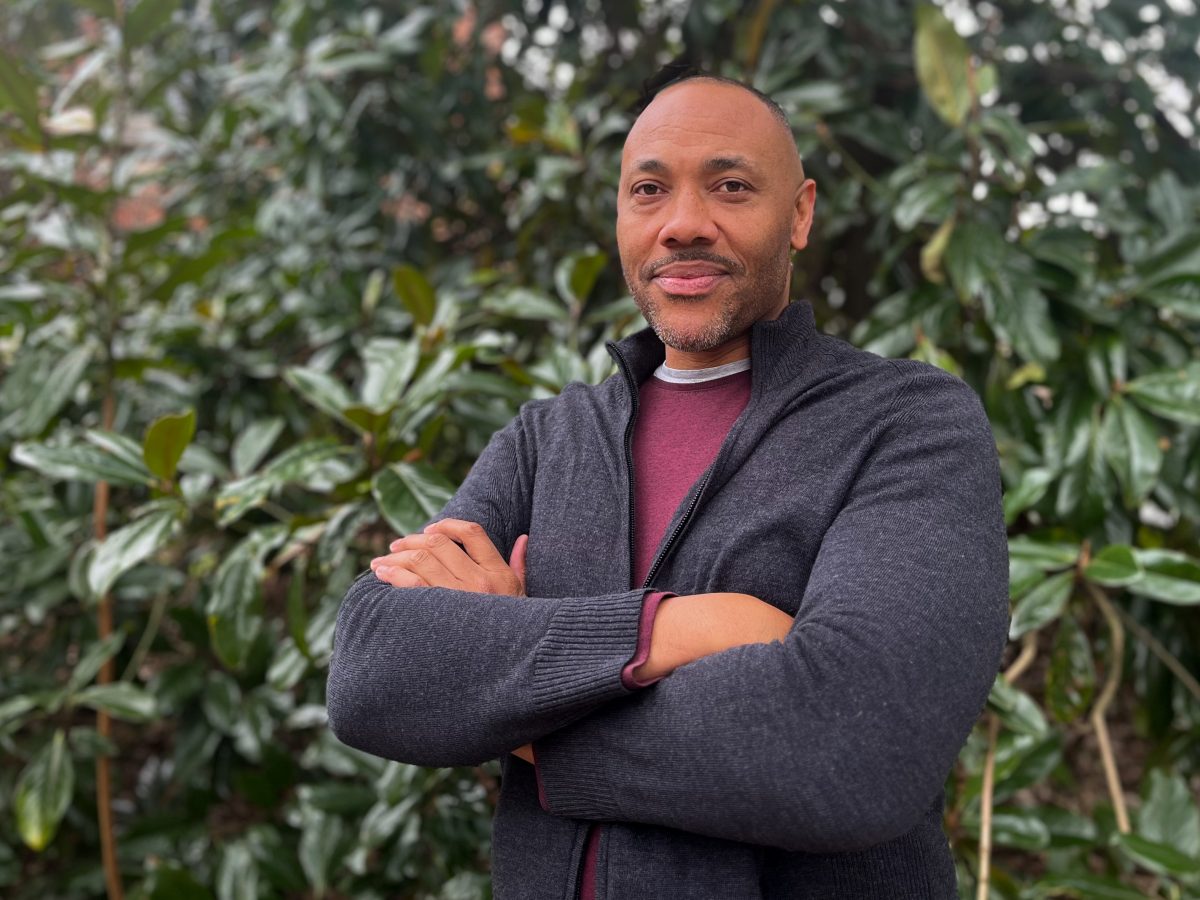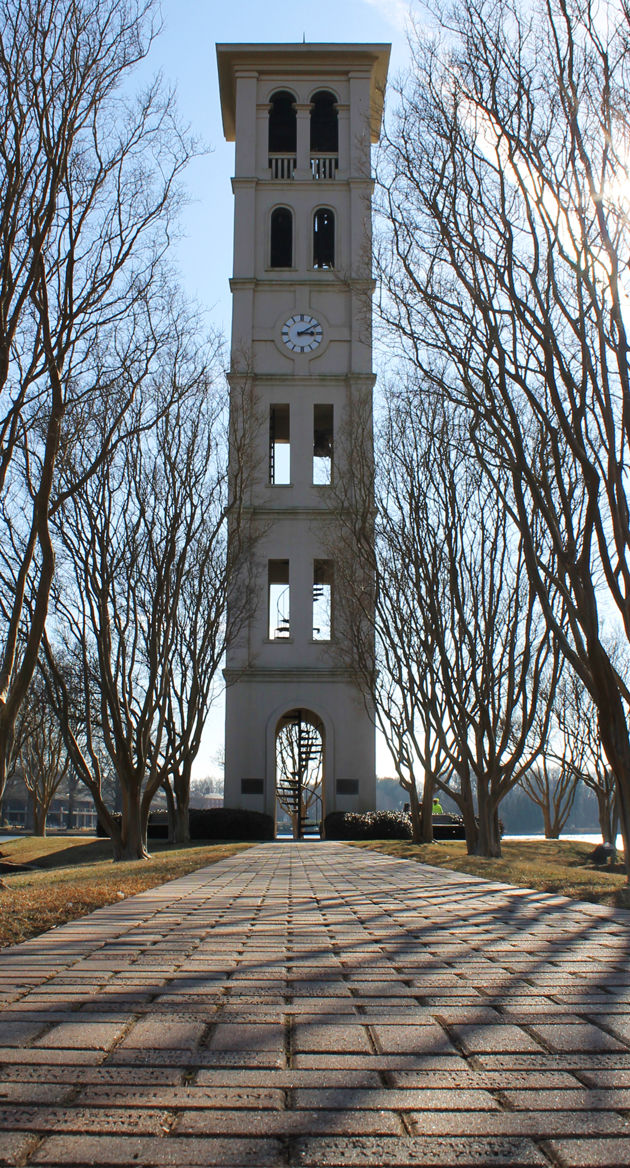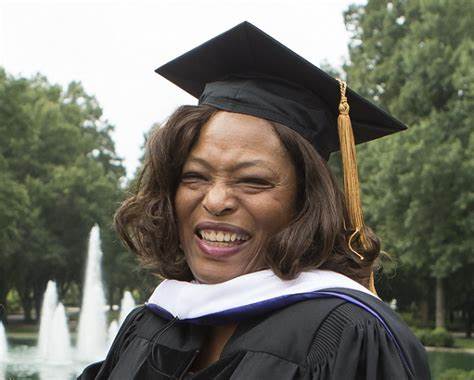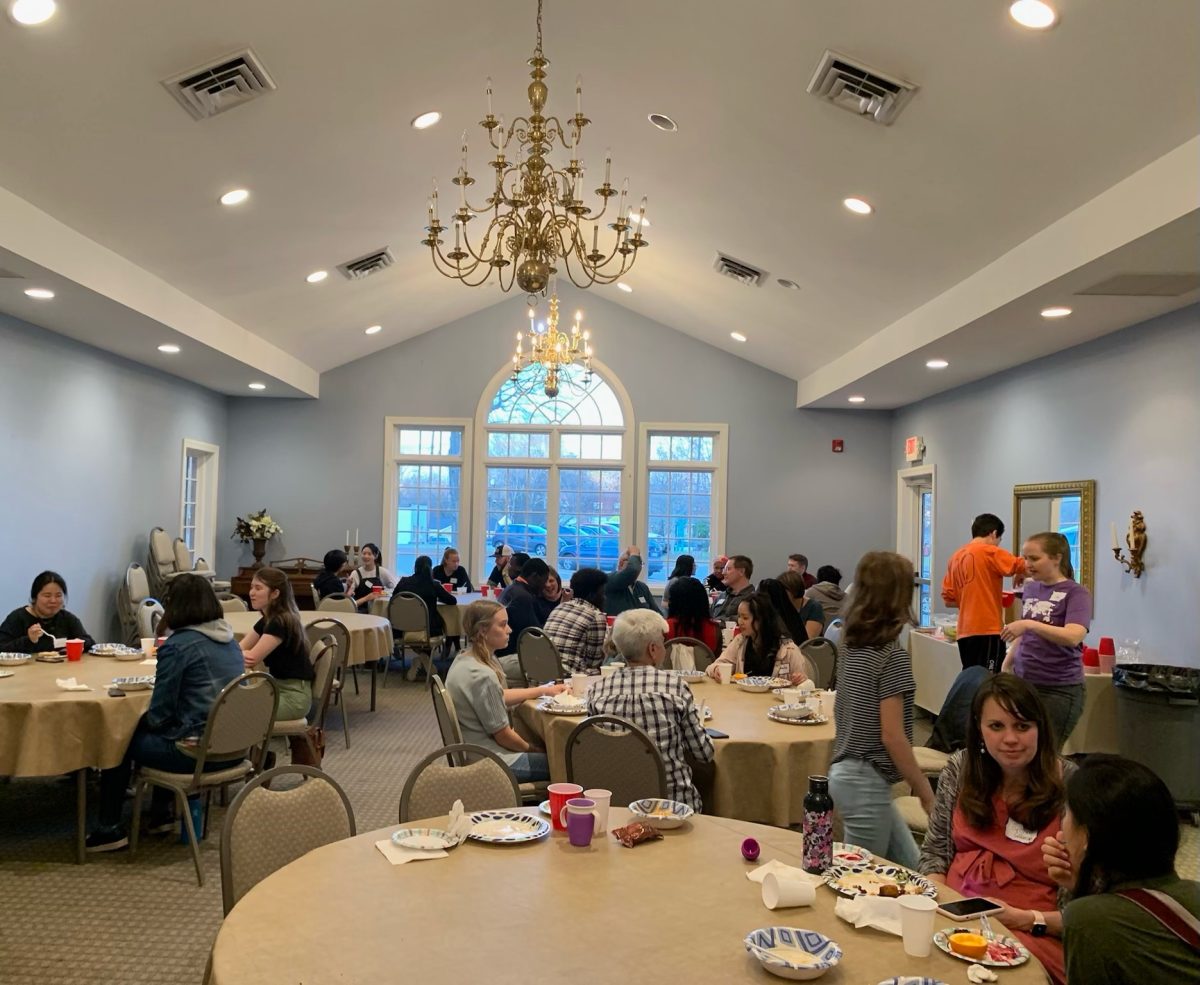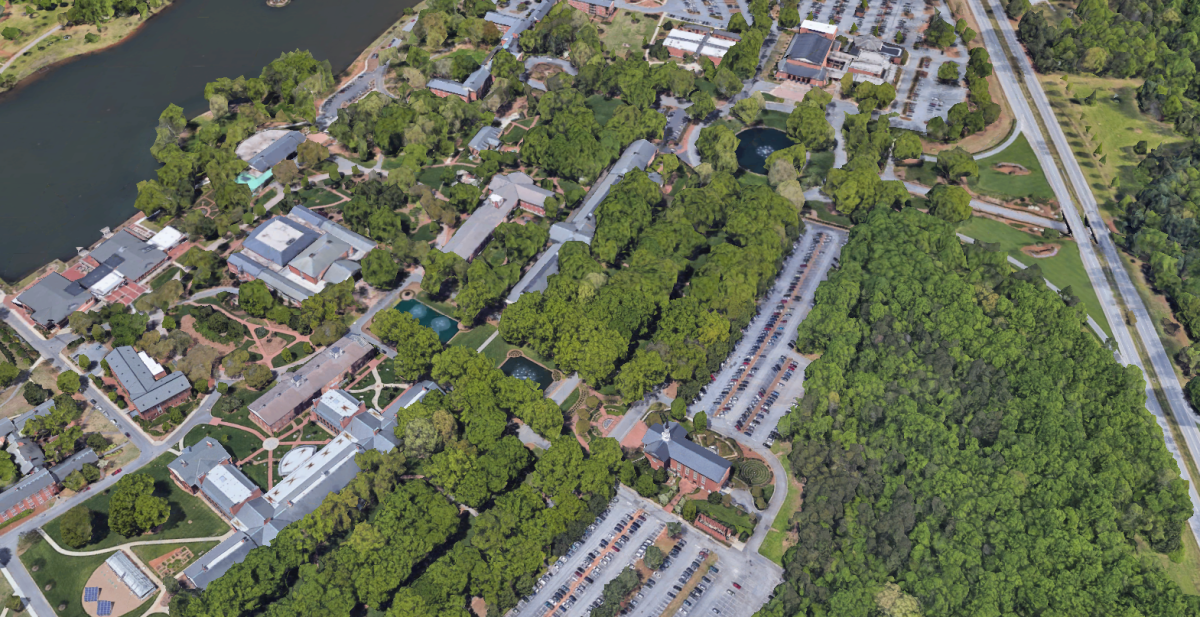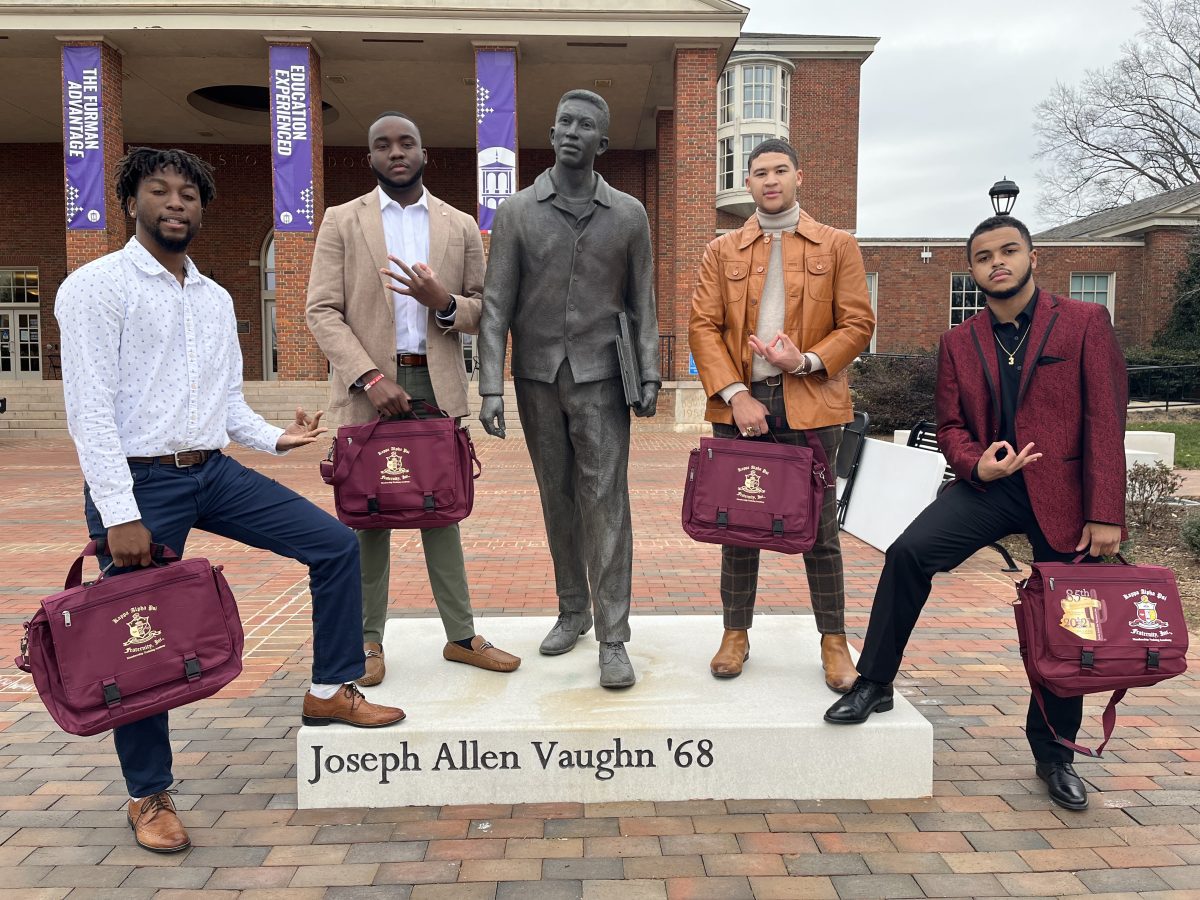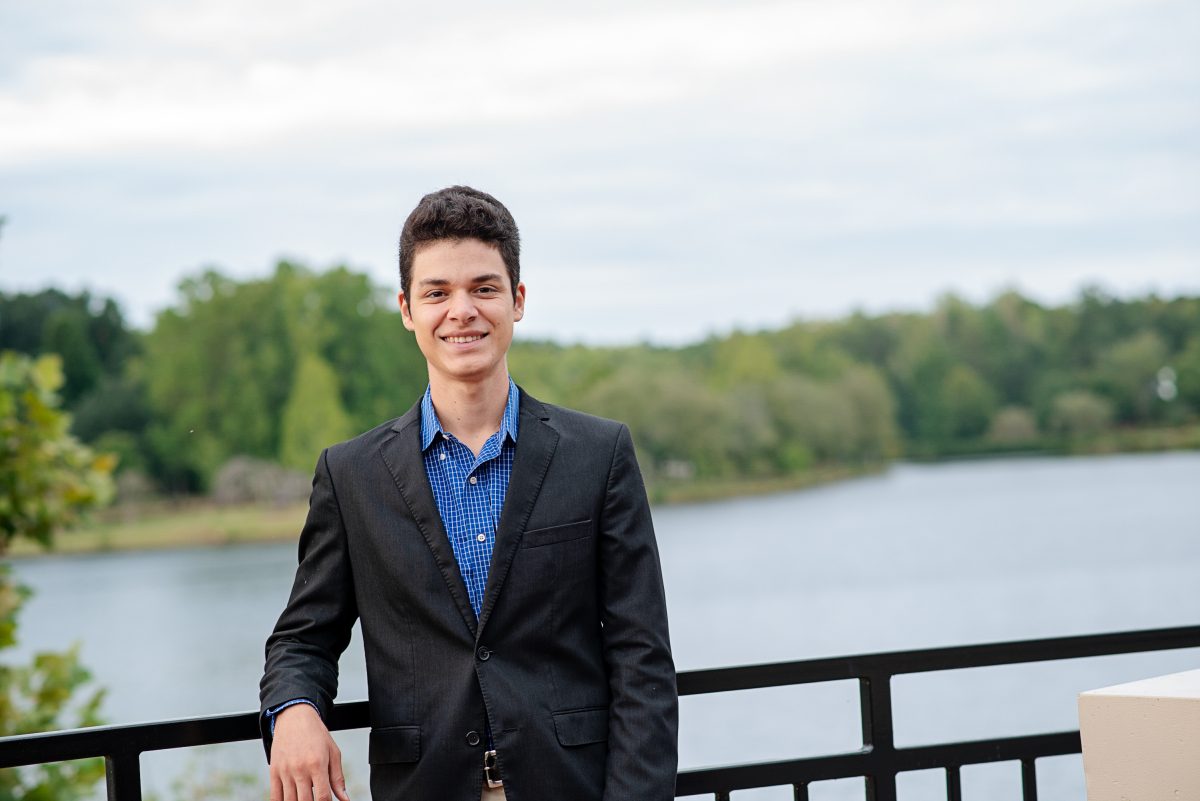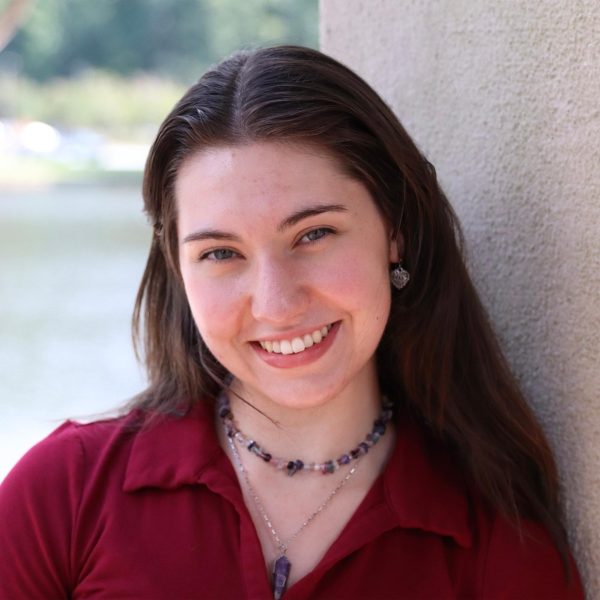Paladin staff member Audrey Enghauser: Tell me a little bit about your role at the Center for Inclusive Communities.
Franklin Ellis, Associate Dean and Director for the Center for Inclusive Communities: Essentially, I give overall vision and aid with cohesion to the office in the area. I would say that our office is made up of several different things, where we have the international students that we support, and then we support the Student Diversity Council, as well as the Intergroup Dialogue program.
AE: What are some of the Black History Month events happening this month that students should know about?
FE: There’s so many. I do believe that all of them are important as I think they all touch on different aspects of Black African American heritage and history. We have one coming up on Feb. 17, which is ‘Theater of the Oppressed.’, which I think that is going to be a really powerful one. It takes a lot of what’s happening in our society, a lot of injustice and things of that nature, and they use theater in order to confront a lot of those things and to work through them. I think that would be a very powerful experience for folks. If we’re looking at Black History and where we come from, ‘Young, Gifted and Black,’ the gospel concert is going to be amazing, and right before that, we have a CLP called ‘Protesting Music,’ where we have a visiting professor, a faculty member from Virginia Commonwealth University, Dr. Brandi Neal, doing a presentation around protesting music by taking us through gospel music to modern day to talk about how music has been a form of resistance over the years. I’d go with the last one, ‘Black Card Took.’. Myself and Dr. (Kaniqua) Robinson have created a whole game looking at different areas of Black culture. Everybody gets a “Black card,” and then if you answer the question, you get to keep it. If you don’t, we take it. Then lastly, I would say Feb. 21, we have Dr. Kathy Obear, who’s coming in and doing a CLP, Co-Creating Our Future: Critical Skills and Capacity for Leadership. ‘In this engaging conversation, students will explore and discuss ways to actively create true equity and inclusion that benefits the whole of our country and world.’ She does a lot of organizational transformation work, especially with allies to give concrete tools on how to do the work of anti-racism.
AE: How does the diversity of events contribute to what students will gain from it?
FE: I think what it does is it expands on Black history and Black heritage. I think it shows that we are not monolithic. Like any other identity, it’s multifaceted and is very dimensional, so I think that is the power that’s found in it, you get to see the broad range of Blackness.
AE: How have students been getting involved in putting on these events?
FE: A lot of the events that we have going on come from Student Diversity Council (SDC) organization. NAACP has put on an event, the Student League for Black Culture (SLBC) has put on an event. A lot of them are already connected through SDC and student-led.
AE: How do you think that these events being student led empowers these students?
FE: I think what it gives is voice, and it shows that your voice matters. I think all these things are very powerful and potent for people, especially from institutionally marginalized identities, where at times, especially on historically white campuses, we may not always feel as if we have a voice or a presence. To be able to put forth the idea and watch it come to fruition is a powerful thing.
AE: So beyond these events, how else do you think students and faculty on campus can celebrate Black History Month?
FE: By celebrating it every day of the year. I jest on that, but to be serious, we talk about Black history and really highlight it in the month of February, but I think when we look at the contributions that Black African Americans have made to the United States, we should acknowledge Black History every day of the year because it is still U.S. history. I think we have to keep that in the forefront of our minds.
AE: How do you feel about Furman’s efforts on the whole to celebrate the month, but as you said also throughout the year, especially as a predominantly white institution?
FE: I think Furman does a lot in the form of acknowledging a lot of the history of the institution itself with some examples being the Seeking Abraham project and Joseph Vaughan Day, I would say the name “Clark Murphy” is a good example too. I think Furman does a good job of acknowledging its history and the heritage that Blacks have played at the institution. I think it’s the same as I would say at any other institution that I’ve been at so far.
AE: So would you say that is making progress, but there’s still so much to do?
FE: Yes. We’re making progress, but there’s still much more to do. I think some of it too is that at these events the vast majority of people who tend to go are people of color. I think there’s a false notion that if you are not Black, you shouldn’t go. I think it’s there for everyone to learn and everyone to be a part of, just because you’re not Black or in the African diaspora doesn’t mean that you can’t attend any of these events. They’re for everyone. We could do a better job of messaging that, as well as people being okay with going to something during this month.
AE: So expanding on that and trying to get that message out, what would you say to white students could get out of these events that they might not think to attend?
FE: I think again, if we look at history, we must recognize that Black history is U.S. history. You’re still being a part of and understanding the history of the U.S. in a fuller context. What you gain is a broader understanding of a community of people, which I think humanizes them. If we all saw people as people, no one would commit horrible acts against others and we would have an understanding of how our actions and identities can either positively or adversely affect people.
AE: Last question: How do you think that Furman should proceed after February?
FE: What I would say is I would like to see other organizations work with organizations within VSDC that uplift any sort of institutionally marginalized identity, be that LGBTQIA+, be that international students, be that Black students. How do we partner more and appreciate all of the cultures that we have?



































